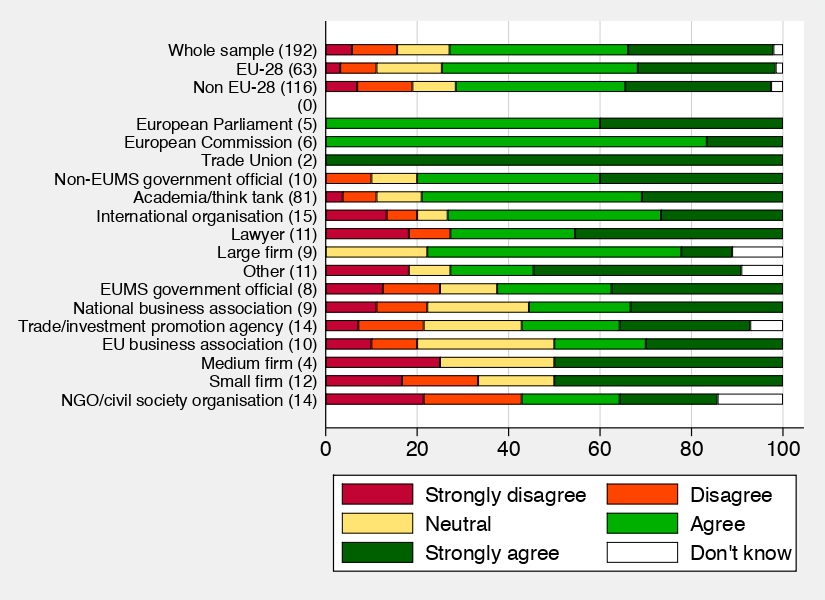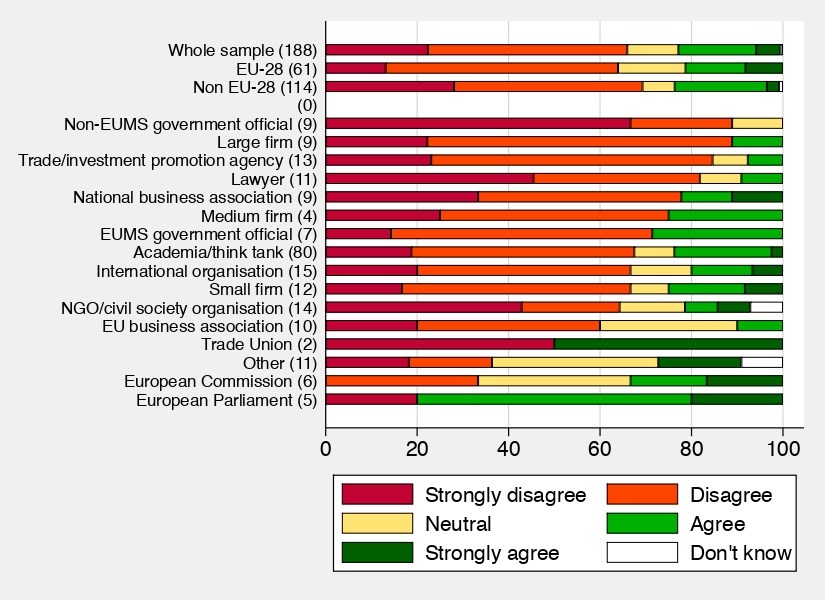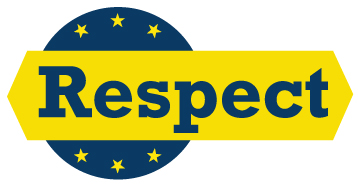The RESPECT project conducts periodic consultations with experts and practitioners in the field of EU external and trade policy.
Survey 1: Completed
The first RESPECT survey collected opinions of almost 500 respondents, on the important theme of EU trade policy and its capacity to serve as a tool to attain EU external policy objectives such as promotion of human right and environmental sustainability.
Results show that almost 60% of the respondents agree or strongly agree that the EU should make access to its markets by other countries conditional on non-trade outcomes (such as human rights, labour, environmental protection and anti-corruption). Unpacking the aggregate figure, national business associations, academia and think tanks, non-EU government officials and SMEs reveal a more lukewarm position.
➤ Working paper with a descriptive analysis of the survey results
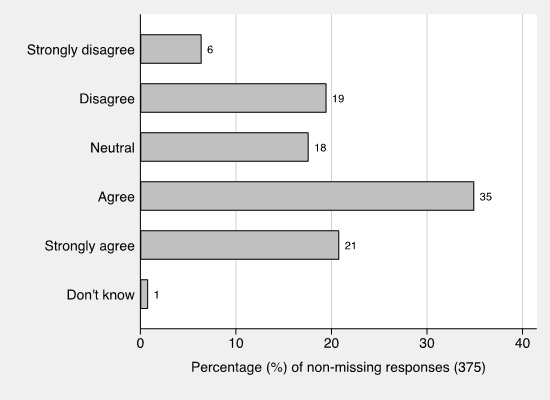
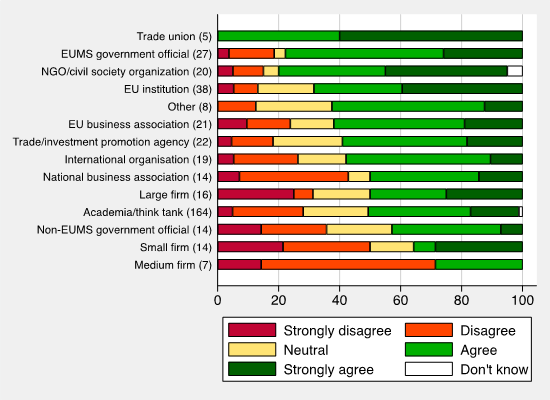
Survey 2: Completed
The second RESPECT survey was used to assess the views of stakeholders and practitioners on the project’s findings. Survey respondents generally support a differentiated approach in the pursuit of non-trade policy objectives through the EU trade policy, in which trade instruments are complemented by non-trade cooperation, including regulatory assistance, expert dialogues, and plurilateral initiatives on non-trade policy objectives. There is also broad agreement the EU should adapt its approach to the prevailing circumstances in partner countries, rather than a “one size fits all” approach in its reciprocal trade agreements.
➤ Working paper with a descriptive analysis of the survey results
